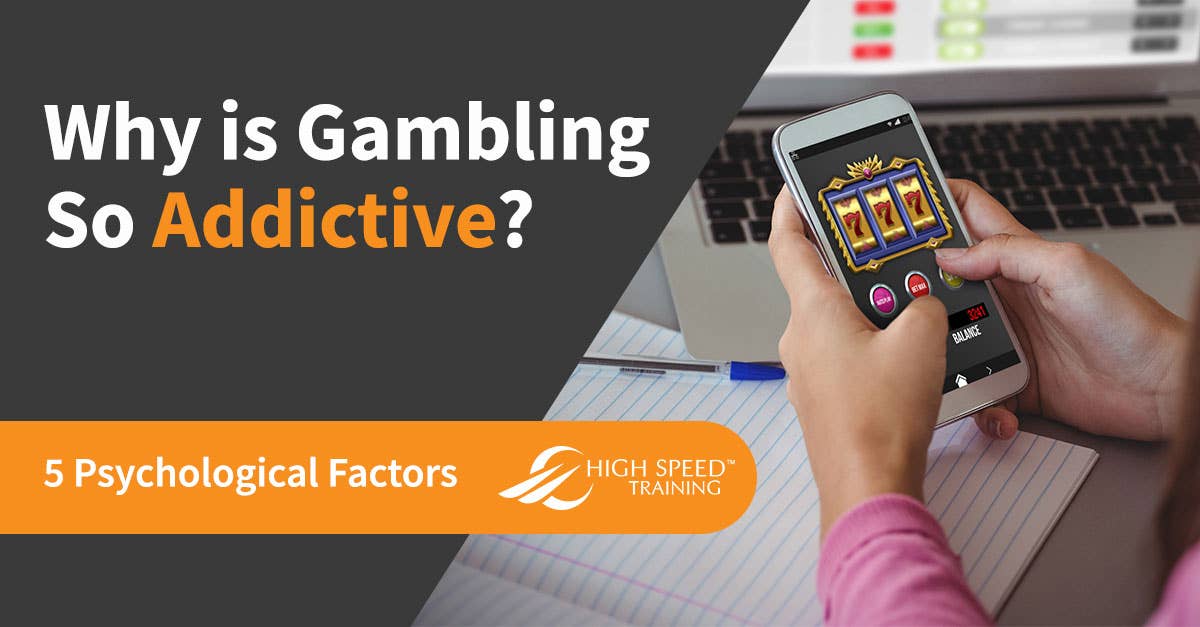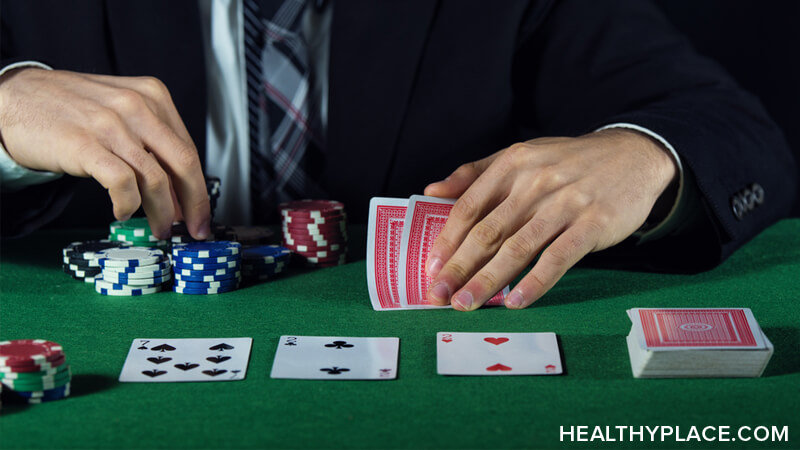I Think I Have A Gambling Problem
A person with a gambling “problem” may lie or minimize “what’s going on” and that is NOT just in reference to the gambling. Some gamblers have embezzled or stolen outrageous sums of money, only to throw it away on the gambling. Others raid the family finances. Many resources directed toward spouses recommend “taking control” of. Signs that Someone May Have a Gambling Problem or Addiction. It is often more difficulty to recognize the specific signs of a gambling addiction compared to a substance abuse addiction as with gambling problems the signs could be due to a number of causes, some of them legitimate. If you think you may have a gambling problem but are not sure, ask yourself: Is gambling making me unhappy at work or at home? Is gambling making it hard to sleep at night or concentrate during the day? Am I lying to other people and myself about how much I gamble? Am I gambling to get away from problems or worries?
Problem gambling is defined as gambling that is disruptive or damaging to you or your family, or interferes with your daily life.Most people in the UK gambled or played the lottery in the last year- activities like playing the lottery once or twice a week aren’t harmful. However, for around 9 in 1000 people, gambling becomes a problem or an addiction.
Signs of problem gambling
If you think you might have a gambling problem, help is available.
To start, answer these 10 questions with ‘yes’ or ‘no’:
- Do you spend a lot of time thinking about gambling?
- Are you spending more money on gambling as time goes on?
- Have you ever tried to stop gambling, or cut down on or control your gambling, and not been able to?
- Do you get restless or irritable if you try to cut down on gambling?
- Do you gamble to escape from difficulties in your life, or to cheer yourself up?
- Do you keep playing after losing money to try to win it back – often called ‘chasing losses’?
- Have you lied to other people about how much time or money you’ve spent gambling, or how much you’ve lost?
- Have you ever stolen money to fund gambling?
- Has gambling affected your job, relationships, or home life?
- Do you ask other people to lend you money when you’ve lost money through gambling?
If you’ve answered yes:
- To 1 question – you might have a problem, and it would be a good idea to seek help.
- To 3 questions – gambling probably feels like it’s a problem, and you should seek help.
- To 5 or more questions – it’s likely gambling feels like it’s affecting every part of your life. You should get help as soon as possible.
Effects of problem gambling
While problem gambling itself doesn’t have physical symptoms, the negative effects can appear in many areas of life. These include:
- reduced quality of life – having less money or free time
- problems with your social life – avoiding seeing friends or going out
- physical illnesses caused by spending more time gambling and less time being active, as well as potentially drinking more alcohol
- financial problems – running up debts, and not having enough money for essentials
- relationship problems and conflict at home – this can include arguments with family and friends, or conflict with your partner about financial difficulties
- criminal activity – problem gambling doesn’t make you a criminal, but some people find themselves committing crimes to fund their gambling habit
- unemployment or difficulties at work – if you gamble at work, or miss work due to gambling, it can lead to issues at work and potentially unemployment
Even if you haven’t experienced any of these issues yet, if your gambling is becoming a problem it’s possible these negative effects will happen in the future. It’s important to be mindful of the impact gambling could have on you or your family.
How problem gambling happens
Some people seem to be more likely to develop a gambling problem than others.
Men tend to be more vulnerable to developing a gambling problem than women, likely becausewomen usually gamble less than men.
While a gambling problem can start at any age, people who start as teenagers or young adults can grow into problem gamblers. Children as young as 7 can struggle to control how much time they spend playing video and mobile games, many of which ask for micro-transactions and payments. Older people who feel isolated or bored can also be attracted to gambling.
People who work in casinos, betting shops or arcades can be more likely to develop a gambling habit.
Certain types of gambling can be more likely to lead to a problem than others:

- mobile or internet gambling – like betting or bingo websites and apps
- video poker
- roulette
- dice games
- the stock market
- playing sports for money
Engaging in these activities doesn't mean you have a problem with gambling, but it’s important to be aware that these types of gambling are particularly addictive.
Things that could make problem gambling more likely
There are some factors that can make a person more vulnerable to developing a gambling problem. These include:
- having a mental health condition
- having an alcohol or drug problem
- being in prison
- having a family member, particularly a parent, with a gambling addiction
- a gambling habit that started early – some people start gambling as young as 7 or 8
- having trouble controlling your gambling from the first time you did it, even if you don’t actually gamble very often
I Think I Have A Gambling Problem Solving
This doesn’t mean that everyone in these circumstances will develop a problem, but it’s important to be aware of the risk if gambling is something you do.
Self-help for problem gambling
If you feel your gambling has become a problem, there are steps you can take right away to start improving your situation.
1. Limit how much money you can spend gambling
- Pay all your essential bills, like rent/mortgage, utilities, council tax, food, and childcare costs, as soon as you get paid.
- Set yourself a weekly limit on how much you’re willing to spend on gambling, and be sure to stick to it.
- If you go out to gamble, leave your debit and credit cards at home and only take cash, so you can’t spend more than planned.
- On gambling websites and apps, set a limit on your account so you can’t overspend.
- Talk to your bank about blocking certain websites or locations, like betting websites or casinos.
- UseGAMSTOPto block yourself from accessing online gambling sites and gambling apps. GAMSTOP doesn’t cover every site or app operating in the UK, but you can contact ones you use that aren’t signed up to this scheme and ask them to block you.
2. Reduce the time you spend gambling
- Set a limit on how often you gamble in a week. Be specific and name the days – for example: “I will only gamble on Tuesdays and Fridays.”
- Resist the temptation to open up gambling sites or apps for a ‘quick go’ or just to make one bet – it’s likely that you’ll find it hard to stick to just one.
- Set alarms or alerts on your phone, watch, or computer to remind you when it’s time to close the site or app and stop gambling for the day.

3. Don’t think of gambling as a way to make money
- Remind yourself frequently that gambling isn’t a way to make money – you’re paying for entertainment. It’s not an investment, and you’re not earning money by gambling.
- When you gamble, always prepare yourself to lose. Remind yourself that winning is by chance, and not something that happens more often than losing.
- Never spend money from savings or investments on gambling.
- Tell your friends and family not to lend you money if you ask.
4. Fill up your time with other things
- Spend more time with friends and family.
- Spend less time with people you know who gamble, or people you usually gamble with.
- Join clubs or social groups that don’t involve gambling – this could be a good time to take up a new hobby, or restart one you haven’t done for a while.
- Talk to friends and family about your situation and your concerns, rather than ‘bottling up’ your feelings.

For more self-help advice and tools, you can access resources on the GamCare website.
Getting help with problem gambling
There are a lot of ways to access help with problem gambling. There's also support available if you have a loved one with a gambling problem.
Gamblers Anonymous Scotland has meetings every day, and is free to attend. The meetings are informal and friendly, and there are currently around 70 meetings held in Scotland every day. Gamblers Anonymous also has a 24-hour helpline you can phone on 0370 050 8881.
If you have a loved one with a gambling problem, support is available from Gam-Anon Scotland. The organisation has supportive, confidential meetings that are separate from Gamblers Anonymous meetings. You can also phone the Gam-Anon 24-hour helpline on 0370 050 8881.
GamCare provides information, advice and support for anyone affected by problem gambling. It operates the National Gambling Helpline, and provides treatment for problem gamblers and their families. You can phone the National Gambling Helpline 24 hours a day, 7 days a week, on 0808 8020 133.
If you’re looking for ways to stop yourself from gambling, GAMSTOP allows you to block your access to certain gambling websites and apps.
For advice on gambling as safely as possible, or help reporting a gambling business that’s breaking the law,visit the Gambling Commission website.
If you’re looking for help educating a young person about gambling, or need educational materials for a class or youth group, the Fast Forward Gambling Education Hub has a number of useful resources.
You can also visit your local primary care team for support and information about resources in your local area. Visit Scotland’s Service Directory for information on services near you.
For other help and support, use Scotland's Service Directory to find counselling, mental wellbeing, and money advice services in your area.
If you’re struggling with the impact gambling is having on your life, or the life of a loved one, phoneBreathing Spaceon 0800 83 85 87 for support and counselling. Breathing Space is open:
- Weekdays: Monday to Thursday 6pm to 2am
- Weekends: Friday 6pm to Monday 6am
Signs of slot machine addiction
When gambling on a slot machine, the bond between the gambler and the machine becomes personal, no one to interfere with their gambling and no one to compete against. The player feels a fondness for a particular machine and some players even get irritated if they see someone else playing their machine. If the slot player is playing longer than he planned, spending more money than he can afford, and telling lies about how much he wins or loses, perhaps he has a problem. If s/he is concerned about his behavior while gambling and even during periods when the person is away from the casino, perhaps s/he may have a slot machine addiction. Other signs of slot machine addiction include:
1. Belief that you are not gambling with “real money”.
2. Belief that you will win back money that you lost on a slot machine.
3. Developing a personal relationship or bond with a particular slot machine.
4. Feeling irritation when you see someone else playing on “your” slot machine.

I Think I Have A Gambling Problem Involving
5. Playing a slot machine longer than planned.
6. Spending more money on a slot machine than you can afford.
7. Lying about how much you win or lose on a slot machine.
8. Thinking about playing the slots when you are away from a casino.
9. Problems at work, home or in a social setting due to playing the slots.
I Think I Have A Gambling Problem To Be
10. If you think you may have a gambling problem, you probaby do.
Slot machines are designed to be addictive
Slot machines are also known as VLTs (video lottery terminals) or pokies. The machines are designed with three or more reels that spin when a button is pushed or a handle pulled. The machines have different themes containing graphics and music from popular movies or TV show. The sounds, colors, and images on slot machines have been designed by psychologists to seduce the player and the music reinforces the addictive behavior.
Dopamine, adrenaline and slot machines
The rapid response from the machine has a hypnotic effect and stirs up the dopamine in our brains. And the speed of slot machine games keeps the gamblers’ adrenaline pumping. Even if the gambler does not win, the machine makes him feel that he almost did. And for the gambler that can be just as great a feeling as winning the jackpot. In fact, the person can sit there for hours just pushing buttons and zoning out because the games require no thought or skill. Many slot players have commented, “I just couldn’t get up and walk away.”
I Think I Have A Gambling Problem Without
Instant gratification on slot machines
I Think I Might Have A Gambling Problem
When a person gambles on slot machines they don’t have to think or plan their next move. They don’t have to wait for cards to be dealt, horses to run around a track, or the end of a sports event, to know the score. Playing the slot machines person knows instantly if he won. Even if he didn’t win, the reels show him how close he came to winning. The machine tells the player that it is ready to pay off because the images on the reels were showing us three, four or five of a kind.
Slot machines are the crack cocaine of gambling

I Think I Have A Gambling Problem Finding
Slot machines are powerful revenue-generating forces designed to keep the player spending more money. The innocence of the slot machine attracts the gambler as he walks through the casino but the slot machine addiction has been described as the crack cocaine of gambling. The money that people gamble on slot machines typically isn’t important and is treated like Monopoly money. Even when the person loses, they believe they will win back all the money they lost to the machine. To compound the losing of money, several ATM machines are located in the gambling area. But what has your experience been? Are you having trouble with slot machine use? Please share your thoughts below, and we will respond to you personally!